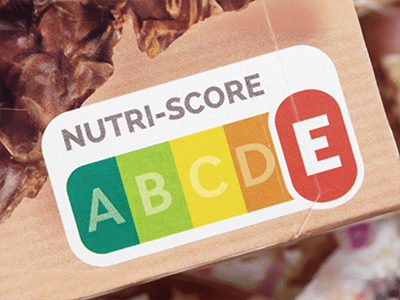A study published in Lancet Regional Health – Europe has validated the Nutri-Score’s effectiveness in reducing cardiovascular disease risks by improving diet quality. Conducted between 1992 and 2010 as part of the European Prospective Investigation into Cancer and Nutrition (EPIC), this research followed 345,533 participants across seven European countries, highlighting how front-of-pack nutritional labeling can significantly promote healthier eating habits.
The study’s findings come at a crucial time as European regulators are considering updates to food labeling policies. The potential widespread adoption of the Nutri-Score could empower consumers to make informed decisions and encourage healthier diets across Europe.
Regulatory Context: The Nutri-Score and EU Policy
The Nutri-Score, a color-coded labeling system ranging from green (A) for healthier food choices to red (E) for less healthy ones, was first implemented in France in 2017. Since then, six additional European countries have adopted the system. While it is currently voluntary, this research supports making the Nutri-Score mandatory across Europe, aligning with broader public health goals to combat chronic diseases such as cardiovascular disease.
With cardiovascular diseases accounting for one-third of deaths in Western Europe, and diet being responsible for roughly 30% of these cases, this study bolsters the case for regulatory measures that promote dietary improvements. By ranking foods based on their levels of energy, sugars, saturated fats, salt, proteins, and beneficial nutrients (e.g., fruits and vegetables), the Nutri-Score encourages both consumers to make healthier choices and manufacturers to improve the nutritional quality of their products.
Key Findings: Validating Nutri-Score’s Impact
- Study Size and Scope: Involving 345,533 participants from the EPIC cohort, this long-term study followed dietary habits and health outcomes over 12 years.
- Cardiovascular Risk: Higher Nutri-Score ratings (indicating lower nutritional quality) were associated with a greater risk of cardiovascular diseases, such as myocardial infarction and stroke.
- European Cohort: This study, the first of its kind across seven European countries, provides strong evidence that Nutri-Score can be an effective tool in reducing the incidence of cardiovascular diseases on a continental scale.
These findings are particularly important as they follow earlier studies linking the Nutri-Score with reduced cancer risk and mortality, further reinforcing the label’s utility in chronic disease prevention.
Implications for Regulatory Policy
The results of this study provide a compelling argument for the European Union to consider making the Nutri-Score mandatory. By doing so, Europe can standardize front-of-pack labeling, ensuring consumers across the continent receive clear and consistent information about the nutritional quality of the foods they buy.
As the European Commission moves towards revising food labeling regulations, the Nutri-Score could be a central feature of future policy, potentially transforming the food industry and improving public health outcomes.
Subscribe to the latest regulatory news
Curated newsletters
Relevant industry info
Access expert insights

